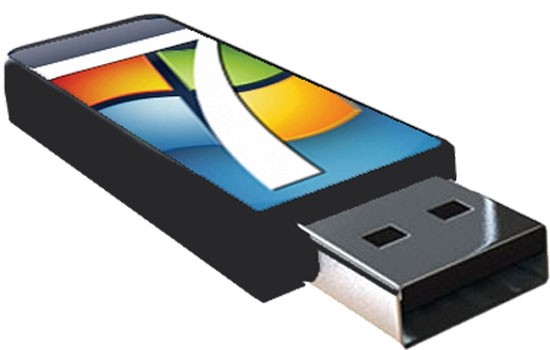I can’t remember the time I used a CD Drive, in fact I’ve replaced the SuperDrive in my MacBook Pro with a nice SSD; that just shows our reliance on CD Drives is becoming less and less. This is due to many factors, some of which include: increasing reliance obtaining digital downloaded software from App Stores, downloading media from online sources, or downloading games from places like Steam. This makes bootable Windows 7 USB’s a necessity for me.
I found that I needed to reinstall Windows 7 on my PC, and in a similar situation to my MacBook Pro, it doesn’t have a disc drive either since it’s an Intel Atom running as a NAS. I have all my important OS installation files backed up as ISO’s so I needed to put those on a USB and make it bootable, simple copy and paste right? No…
Bootable Windows 7 USB
There are two ways to create a bootable USB, and the first is fairly simple and just involves downloading Microsoft’s own Windows 7 USB/DVD Download tool. This is extremely simple (although I’ve had varying results) and just involves pointing the application at your ISO and USB and hitting go.
The other way is using DiskPart, and should be used for those who are unable to use the above method, or simply like the command prompt.
- First, click start, and in the search box, type cmd.
- Right click on cmd.exe and run as an administrator.
- In the command prompt, type the following, replacing the xx with the number of your disk:
diskpart
list disk
select disk xx
clean
create partition primary
select partition 1
active
format fs=ntfs
exit - You should now be looking at a normal cmd prompt. Now type the following where xx is the name of your USB and yy is the drive in which your ISO is either mounted or extracted:
cd yy:\boot
bootsect /nt60 xx:
exit - Now you just need to copy all the files from inside your expanded ISO to your USB stick.
- That’s it, you now have a bootable USB stick.



